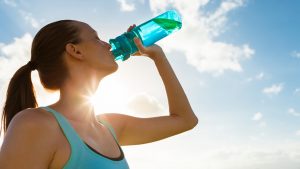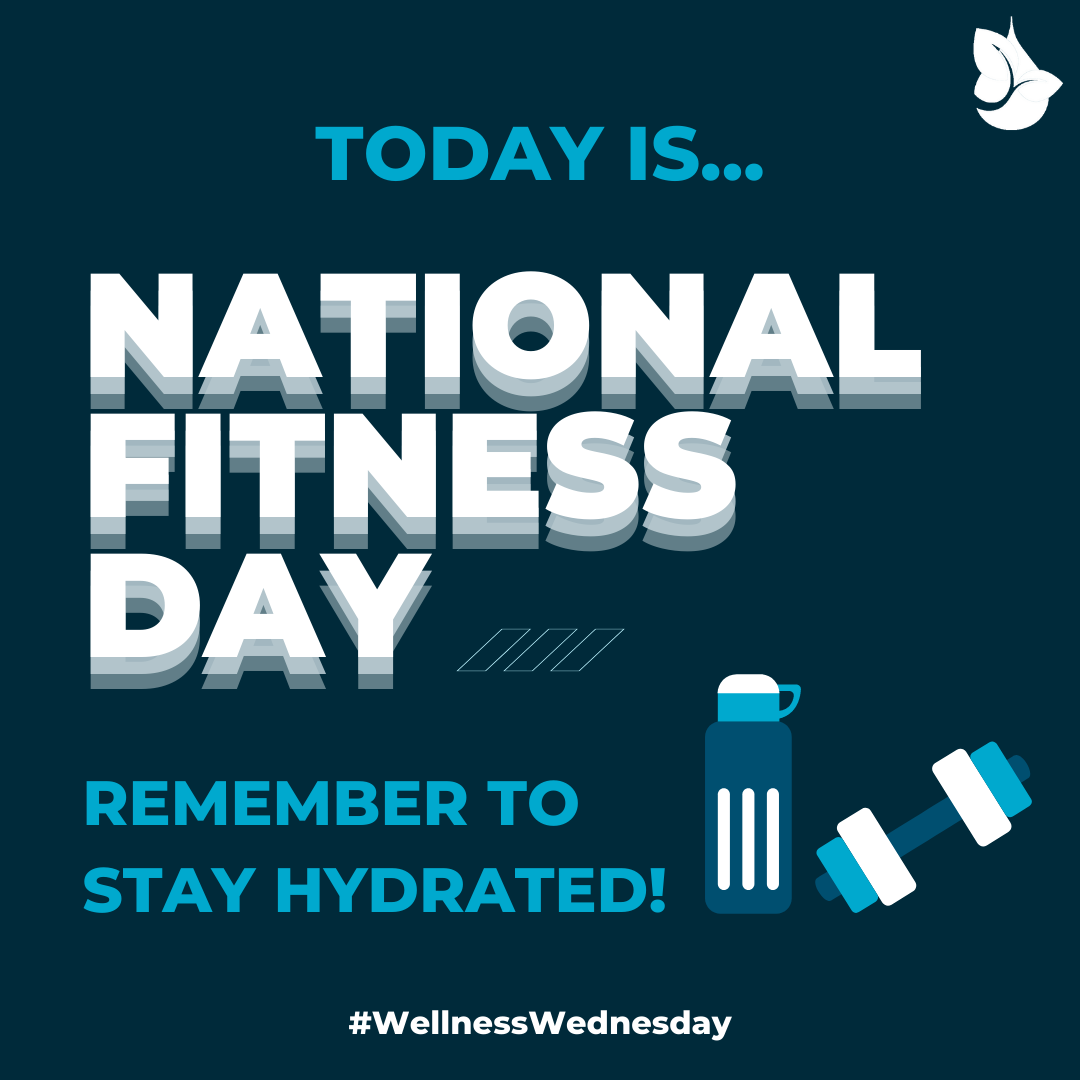When to hydrate on National Fitness Day
Today is National Fitness Day 2021 and a chance to highlight the role physical activity plays in our lives, helping to raise awareness of its importance to lead healthier lifestyles through being physical active.
National Fitness Day sees a huge range of activity options enjoyed by participants of all ages, such as ‘plank offs’, yoga and pilates classes, treadmill challenges, high-street HIIT classes, dance-offs, mass walks, virtual workouts and many more.
Whether you’re an elite athlete or a weekend warrior, hydration is key during exercise. Here are some useful top tips.
Around 60% of your body is water and it plays a vital role in every bodily function. You can lose a lot of fluid – as much as a litre or two an hour – mainly through sweating and breathing. So, you’ll need to drink more when you exercise.
If you don’t top this fluid back up, you can get dehydrated. This can affect both your general health and how well you can exercise. You’ll feel tired more quickly if you’re dehydrated, and you won’t be able to control your temperature as well as usual. Check your dehydration by the colour of your urine – pale is good, dark yellow is a sure sign of dehydration so drink water immediately.
Water helps fuel your muscles, so drinking before, during and after exercise will boost your energy levels, and may help to prevent cramp.
Be sure to drink water before you work out
Make sure you are well hydrated before you exercise. This is important, especially in hot conditions. If you’re dehydrated before you start exercising: your core temperature will rise faster, and your heart will have to work harder than usual
It can take time for fluids to be absorbed into the body. So, drink steadily during the day and aim to drink around 450ml of fluid in the two to four hours before you exercise. After that, drink more if you feel thirsty.
While you exercise
It’s important to drink water while being active – take a water bottle with you on a run, for example. Being dehydrated can affect your energy levels – you won’t be able to work as hard if you haven’t drunk enough fluid. Drinking little and often will give you the best chance of hitting your exercise targets.
The amount you need to drink will depend on how much you sweat and how long you exercise for. How much you sweat and lose water is influenced by your size – larger people tend to sweat more than smaller people, and men sweat more than women. Fitter people sweat more and earlier in exercise because their bodies are accustomed to needing to cool down. You also sweat more in hot, humid conditions and with more intense exercise.
One way to know when to drink is to respond to what your body tells you. If you feel thirsty, you really need to drink as your body is already showing signs that it needs to take on more fluid.
Make sure you always have a sports bottle of water handy when you exercise so you don’t get dehydrated and can refill.

Hydration after exercise
After the hard work you will need to replenish your fluid levels and help your muscles to recover. Drink until the colour of your urine returns to a hydrated colour – water should be enough unless your workout is very strenuous or lasts over an hour.
What about sports drinks?
The array of sports drinks on the market can be overwhelming and they can contain lots of added sugar. So, it can be hard to know which to choose and if they really offer any benefit.
If you’re doing moderate amounts of exercise, you won’t need them. Simple water is often the best thing to drink during and after a workout. If you’re exercising for less than an hour, water is all you need. But if you’re doing strenuous training, sports drinks may be useful.
Sports drinks or even just squash can help you keep going for longer. As well as replacing lost fluid, sports drinks contain carbohydrates and electrolytes such as sodium, potassium and magnesium, which you lose though sweat. These drinks provide fuel and help to keep you hydrated.
Here’s a tip to avoid spending lots of money on sports drinks that may contain lots of sugar and additives, to make your own at home. Mix 200ml squash (full fat version) with 800ml water and add a large pinch of salt.




